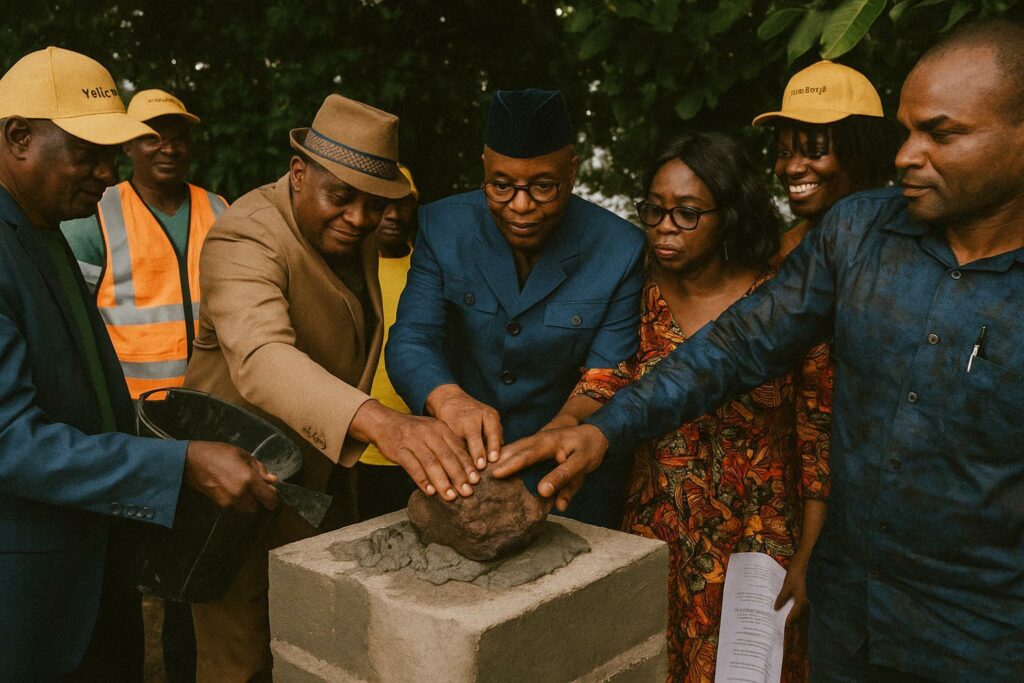A remote region, a fragile health system
The Sangha department, carpeted by dense equatorial forest and bordering Cameroon and the Central African Republic, sits hundreds of kilometres from Brazzaville’s decision-making heart. Public health indicators mirror this distance. According to the World Bank, maternal mortality in the Republic of Congo remains above 320 deaths per 100,000 live births and rural access to basic care lags well behind the continental average. Ouesso’s hospital of base, built in the 1980s, has long wrestled with intermittent electricity, chronic stock-outs and a tertiary referral chain weakened by riverine logistics (World Bank, 2022).
The corporate cheque and its symbolism
Against that backdrop, MTN Congo’s decision to inject more than 130 million CFA francs—approximately 215,000 US dollars—into a 400-square-metre care unit resonates beyond bricks and mortar. Vanessa Tsouma, executive director of the MTN Foundation, framed the initiative as “an investment in social stability as much as in health security”. Regional officials echoed the sentiment, highlighting the project’s six-month construction window and its alignment with the government’s Plan national de développement 2022-2026.
The building will include laboratories, observation wards and a pharmacy, but its most strategic elements may be invisible at first glance: a rooftop photovoltaic array intended to buffer fragile power grids and a borehole designed to secure water sovereignty. In a province where diesel shortages frequently darken operating theatres, the optics of self-sufficiency carry diplomatic weight.
Renewables, reputation and risk management
Telecom operators across Africa have increasingly woven green energy into their corporate social responsibility portfolios, a trend encouraged by shareholder pressure and the Paris climate framework. MTN Group’s 2023 sustainability report touts a continent-wide target of net-zero by 2040, and the Ouesso panels offer a tangible expression of that pledge. Yet engineers caution that solar autonomy in rainforest latitudes hinges on meticulous maintenance and battery security, both resource-intensive undertakings rarely budgeted into inaugural headlines (International Renewable Energy Agency, 2023).
Governance, procurement and the transparency dilemma
Past public-private projects in the Congo Basin have stumbled over opaque procurement and blurred accountability. Civil-society watchdogs such as Publiez Ce Que Vous Payez note that in rural infrastructure, the hand-over phase often exposes maintenance gaps and unclear ownership leading to early obsolescence. MTN insists that once commissioned the unit will remain public property under the Ministry of Health, with the Foundation underwriting a five-year technical support clause. Whether that clause translates into enforceable service-level agreements remains to be monitored.
Soft power and regional geopolitics
In Central Africa’s competitive telecom environment, social ventures can function as diplomatic calling cards. By selecting Ouesso—an economic chokepoint for cross-border timber and cocoa trades—MTN reinforces its corporate footprint along vital fibre-optic corridors linking Brazzaville to Yaoundé. Cameroonian carrier Orange has recently expanded similar health programmes in border towns such as Ketta, hinting at an emerging CSR race that complements, and occasionally complicates, state-to-state relations. Congolese diplomats privately welcome the investment but caution that substitute state-building by private actors may dilute governmental legitimacy if systemic gaps persist (African Centre for Strategic Studies, 2024).
Beyond the ribbon-cutting
In six months’ time a ribbon will be severed, photovoltaic panels will glint above the canopy and residents of Sangha will gain an additional triage room. Whether the project matures into a sustainable template or a cautionary footnote depends on three variables: consistent financing for medical staff, integration of the solar micro-grid into regional energy planning and rigorous public reporting on outcomes. Should those elements align, MTN’s 130-million-franc gesture might stand as evidence that strategic corporate diplomacy can deliver health dividends where fiscal space is constrained. Absent such alignment, the new ward risks becoming another well-intentioned island within a fragile archipelago of care.

